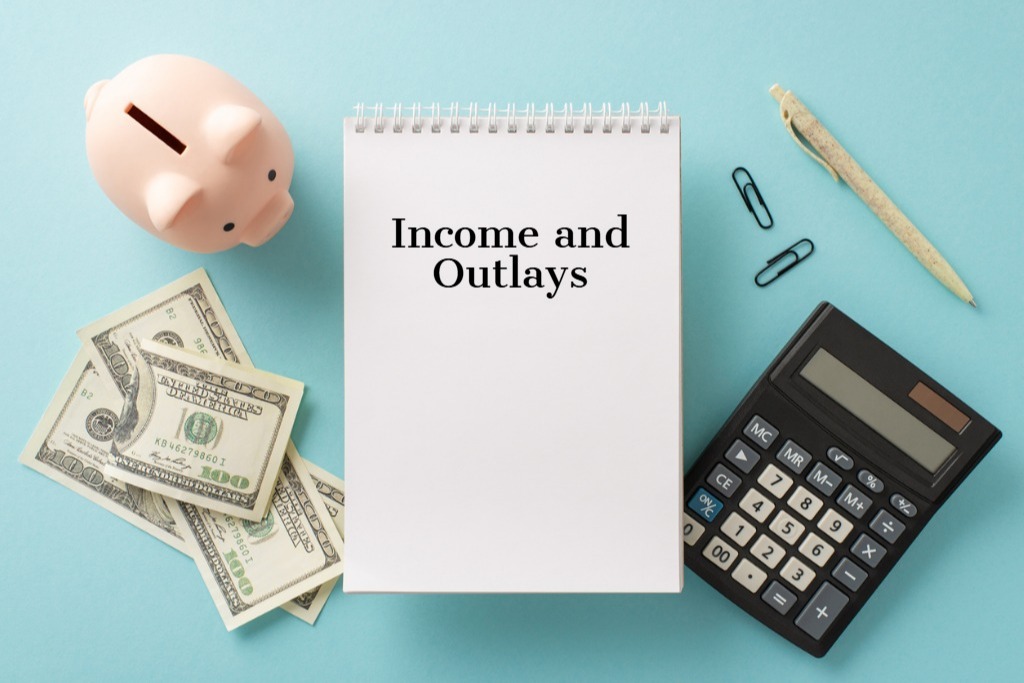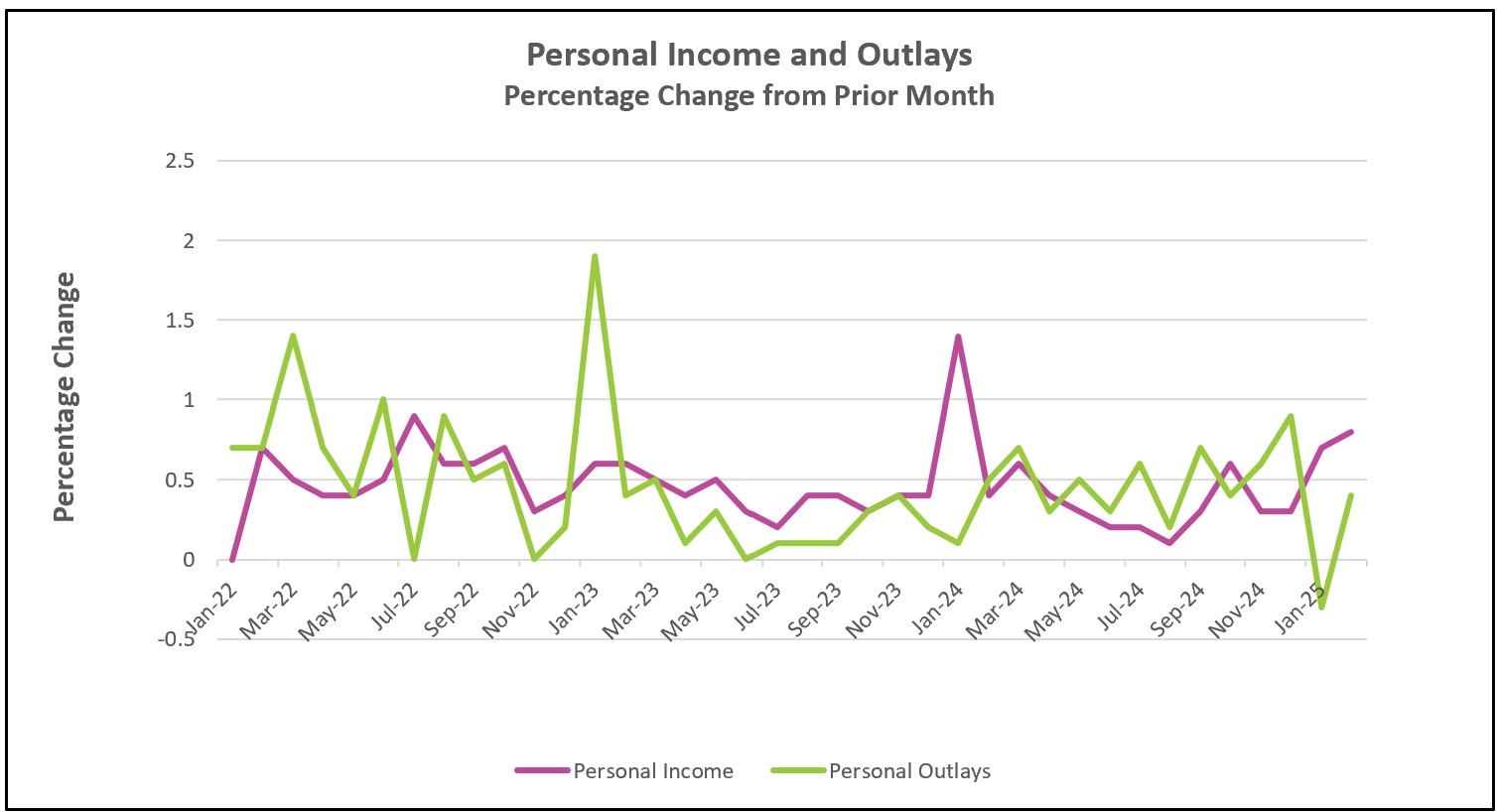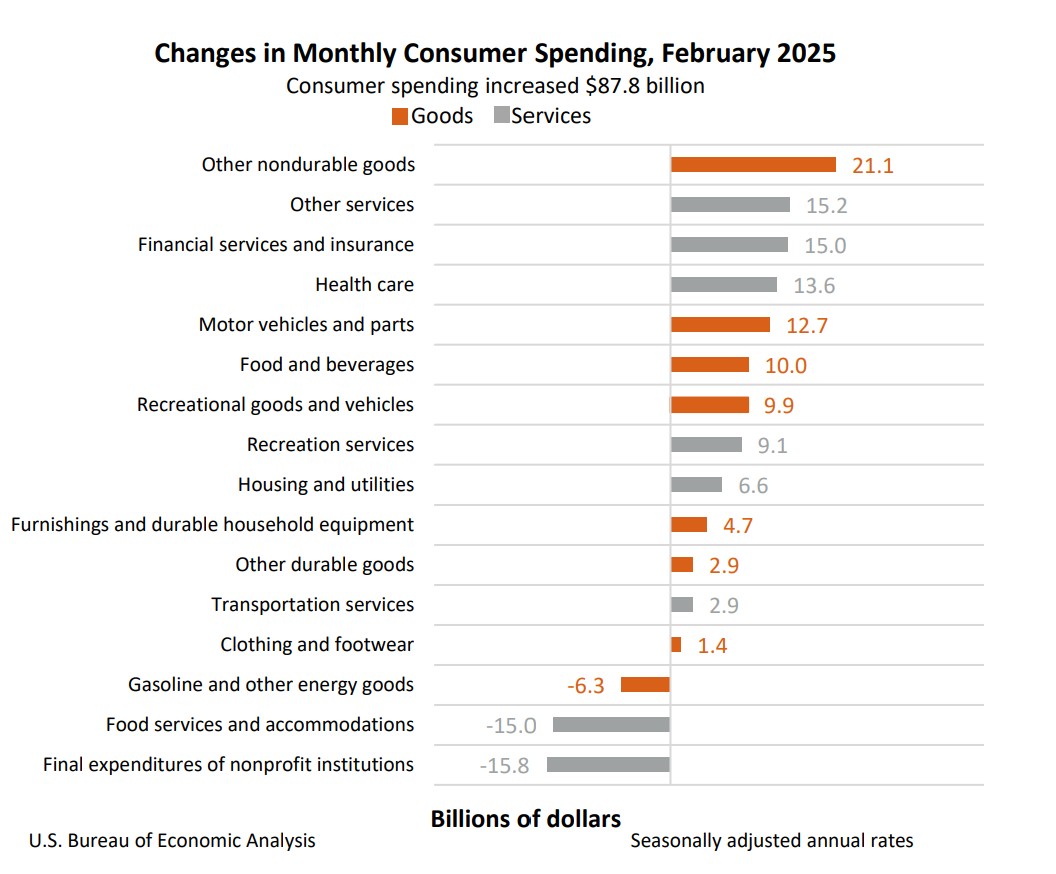

Below are the highlights from the Bureau of Economic Analysis’s Personal Income and Outlays report for February 2025.
The current economy remains strong, but recent data indicates emerging cracks in its foundation. Incomes have increased at a faster rate than inflation, and since May 2023, rising real wages have provided workers with greater purchasing power. This increase in real income has supported consumer spending, which rebounded in February after a significant drop in January. Economists attributed this decline to severe weather conditions rather than economic weakness. Durable goods purchases had the largest rebound, increasing 1.0% after falling 4.6% in January. Continued growth in consumer spending could foster overall economic expansion as businesses ramp up operations to meet rising demand.

However, according to the Conference Board, consumer expectations regarding their future financial health reached a 12-year low. This decline signals the likelihood of a recession. Consumers remained concerned about high prices. President Trump successfully campaigned on a promise to quickly lower inflation, but so far, inflation has remained higher than it was just before the election when the personal consumption expenditures (PCE) price index hit a low of 2.1%. This uncertainty has also been reflected in the stock market, which has seen significant declines as investors worry that businesses and consumers will become more cautious and cut back on spending.
It is important to note that this report was released before many of President Trump’s economic policies were implemented. President Trump announced that April 2 will be Liberation Day when he will impose a new round of tariffs. Most economists believe that tariffs will further increase inflation by raising import costs. They probably already have—tariffs most impact goods prices, which increased 0.4% in February. Additionally, the potential for a trade war could hinder export growth, dampening economic momentum. Many economists have begun warning of stagflation, a troubling combination of slow economic growth and high inflation.
The Federal Reserve Board has adopted a cautious “wait and see” approach in response to these conditions and left interest rates unchanged at their meeting earlier this month. (FOMC Press Release, March 19, 2025) All eyes are now on the upcoming employment figures, scheduled for release by the Bureau of Labor Statistics on April 4th. The job market has remained a pillar of economic strength, but there are growing concerns that ongoing economic uncertainty may lead businesses to slow their hiring processes.
Higher Rock Education will closely monitor and analyze the employment data as soon as it is released, providing key insights into the labor market and broader economic trends. Stay tuned for our in-depth analysis and expert commentary.